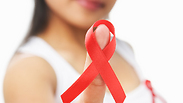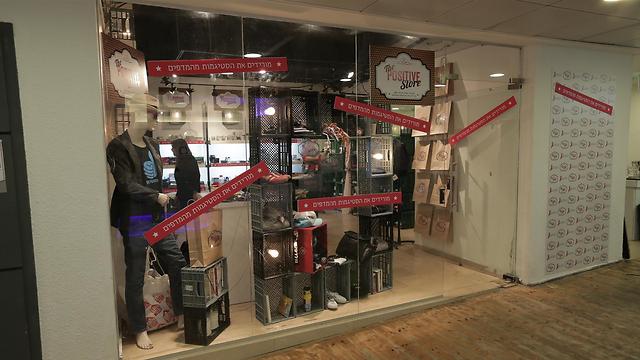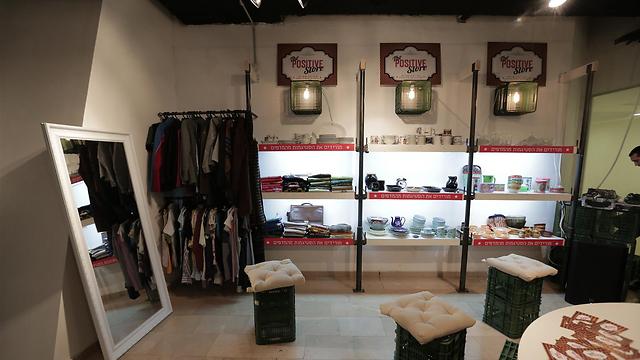
A unique pop-up shop opened Thursday in Tel Aviv's central shopping mall Dizengoff Center – a shop selling solely second hand products donated by people who are HIV positive.
The store, which sells clothes, household items, and several other items sold at symbolic prices, aims to lower the stigma associated with people who have HIV – specifically the fear of close contact with those who have the virus, even though it cannot be transferred through everyday contact or by the simple act of borrowing clothes.
"We sat and thought how the stigma affects us and what each one of us feels towards people who have HIV, and we started to ask ourselves questions such as what would happen if we ate from a plate from a person who has HIV?" said Kobi Cohen, the entrepreneur behind the concept and a copyrighter at the Adler-Chomsky ad agency.
"What would happen if we wore their clothes or put on their earrings? From there we came up with the idea to shatter the stigma with a second-hand store, where people naturally buy objects that belonged to other people. We turned to the Israel AIDS Task Force with the idea for the store.
"To our delight, the task force was interested and from there we began to roll with the idea and with the engagement from people in our office and other good people who volunteered - here it is happening," said Cohen.
Sa'ar Maoz, 41, who has lived with HIV for 11 years now, serves as a social services coordinator at the Israel AIDS Task Force and as a salesman at the pop-up shop.
"For us, the opening of the store is an invigorating experience. We approached the HIV positive community and invited them to take part and we were happy to see that several HIV positive people positively reacted and donated items to the store. We received dozens of bags full of clothes, from sportswear to designer brands, and several other home appliances on a daily basis. The response was really moving," said Maoz.
Every item at the store will be labeled with a tag that directs the shopper to a website which presents some of the people living with HIV in Israel and whose objects are sold at the shop.
Seven people living with the virus were recorded explaining how they deal with the stigma against those who have HIV and call on shoppers to help "take the stigma off the shelves," not only practically but in principle as well.
A survey conducted by the Israel AIDS Task Force in November showed that although today there are doctors and surgeons who are HIV positive and do not infect others during treatment, 54 percent still believe that HIV positive individuals should not practice medicine.
What’s more, 60 percent said they would avoid eating food prepared by HIV positive individuals despite the fact that it is impossible to transmit it through cooking. Only one in five Israelis knew that HIV positive individuals who receive medical treatment can have children who do not have HIV.
Hundreds of items were sold in only a few days, and over the weekend the store – which will close on Wednesday - had over 1,000 visitors. The prices are nominal, between 10 and 60 shekels, with luxury brands being sold side by side with everyday clothes. All proceeds will be donated to Israel AIDS Task Force activities, and all items left over will go to Shanti House, a home for at-risk youth.
The Israel AIDS Task Force has been handing out a “calling card” to every person who comes in, which includes information about ways of infection and the struggle against discrimination faced by infected individuals.
“In a time when HIV positive people work as doctors and save people’s lives, serve in the army, have HIV negative children, and have normal lives, every person must learn how HIV is transmitted, and how it isn’t," said Nissan Shtrauchler, the Task Force’s spokesman.
"We need to not only prevent further transmission of the virus, but also prevent unnecessary stigmas that are rooted in ignorance."
















